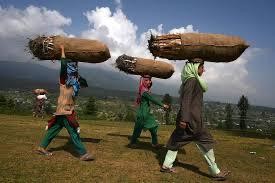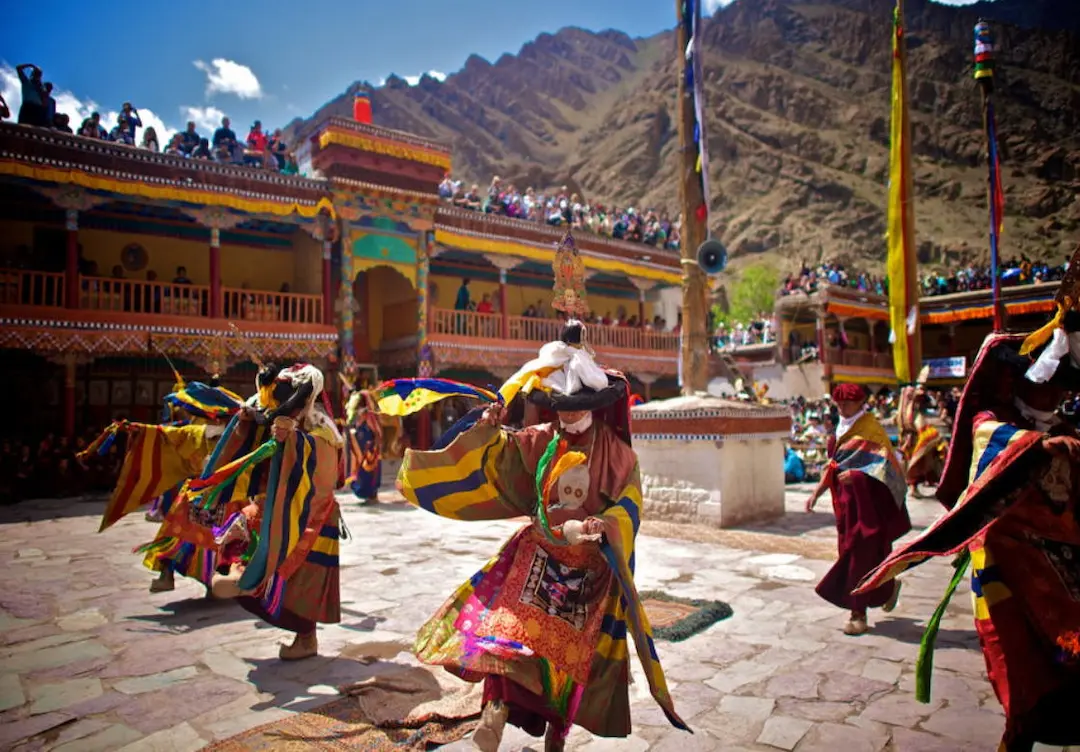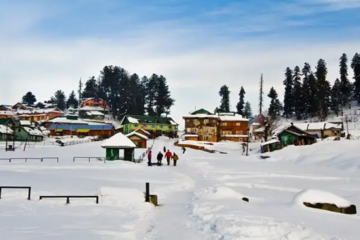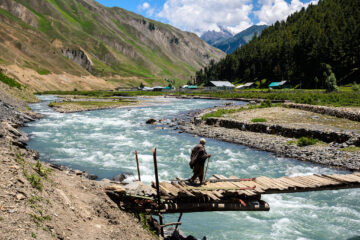Kashmir, often referred to as “Paradise on Earth,” is not only known for its breathtaking landscapes but also for its rich and diverse culture. Nestled in the northernmost part of India, with a part administered by Pakistan and China, Kashmir boasts a vibrant heritage that has evolved over centuries. In this article, we will explore the multifaceted aspects of Kashmiri culture, encompassing its art, cuisine, festivals, and more.
Language and Literature. Kashmiri, an Indo-Aryan language, serves as the mother tongue of the region. The Kashmiri literary tradition is ancient, with roots dating back to the 14th century. Legendary poets like Lal Ded and Sheikh Noor-ud-din Noorani have left an indelible mark with their spiritual and soul-stirring verses. Sufi poetry, resonating with themes of divine love and unity, continues to inspire generations.
Art and Craft. Kashmir is renowned for its exquisite arts and crafts, reflecting the region’s rich history and influences. Among the most celebrated are:-
(a) Pashmina Shawls. Made from the fine, soft wool of the Pashmina goat, these shawls are cherished worldwide for their warmth, lightness, and intricate embroidery. The craftsmanship involved is an age-old tradition passed down through generations.
(b) Kashmiri Carpets. Handwoven Kashmiri carpets are works of art, admired for their intricate designs and meticulous craftsmanship. The influence of Persian designs is evident in the floral and geometric patterns. A Kashmiri carpet is not just a possession; it’s a legacy.
(c) Papier-Mâché. This delicate craft involves creating intricate designs on objects like boxes, vases, and trays using a mixture of paper pulp, glue, and vibrant paint. Each piece tells a story of the artisan’s skill and creativity.
Cuisine. Kashmiri cuisine is a tantalizing blend of rich flavors, aromatic spices, and unique cooking techniques. Some iconic dishes include:-
(a) Rogan Josh. A slow-cooked lamb dish, famous for its rich red color and fragrant spices. It’s a symbol of the region’s culinary prowess.
(b) Gushtaba. Tender meatballs cooked in a creamy yogurt-based gravy, often served at special occasions. The blend of spices in this dish is an example of the complex yet harmonious flavors of Kashmiri cuisine.
- Wazwan. A grand feast featuring a variety of dishes, Wazwan is a symbol of Kashmiri hospitality and tradition. It embodies the rich culinary heritage of the region and is often served at weddings and celebrations.
(d) Kahwah. A traditional Kashmiri green tea flavored with saffron, cardamom, and almonds. It’s not just a beverage; it’s a gesture of hospitality and warmth.
Festivals and Celebrations. Kashmiri culture comes alive during its festivals:-
(a) Eid-ul-Fitr and Eid-ul-Adha. These Islamic festivals are celebrated with great fervor. Families gather for prayers, feasts, and the exchange of gifts, strengthening community bonds.
(b) Navroz. The Parsi New Year is celebrated by the small Parsi community in the region, showcasing the religious diversity of Kashmir.
(c) Shikara Festival. An annual event that showcases the traditional Kashmiri wooden boats, or shikaras, and their cultural significance. It offers visitors a glimpse into the unique way of life along the serene Dal Lake.
Hospitality . Kashmiri’s are known for their warm and generous hospitality. Guests are often welcomed with a traditional Kashmiri meal, reflecting not only the culinary richness of the region but also the spirit of sharing and togetherness that defines Kashmiri culture.
Religious Diversity. While Islam is the predominant religion in Kashmir, the region is home to a diverse array of religious communities, including Hindus, Sikhs, Buddhists, and Christians. This religious diversity adds depth and complexity to the tapestry of Kashmiri culture, fostering harmony and understanding among different faiths.
The tapestry of Kashmiri culture is a living testament to the resilience and creativity of its people. It encompasses a rich literary tradition, intricate arts and crafts, tantalizing cuisine, soul-stirring music and dance, and vibrant festivals. Despite the challenges it has faced, Kashmiri culture continues to thrive, captivating the world with its beauty, depth, and warmth. It serves as a reminder of the power of culture to transcend boundaries and connect people through .





